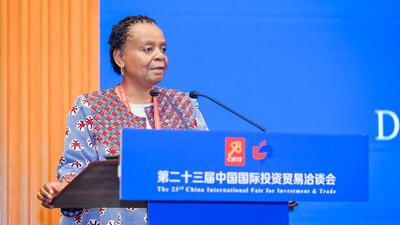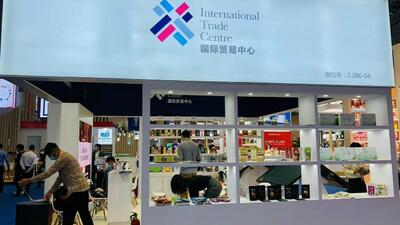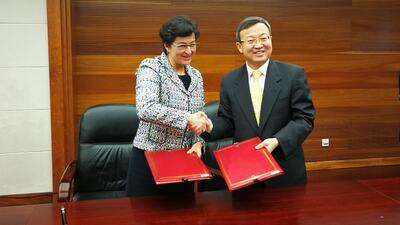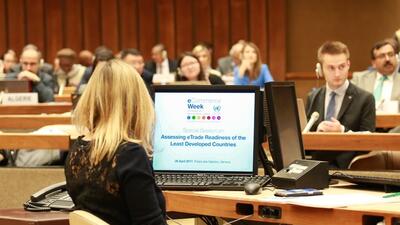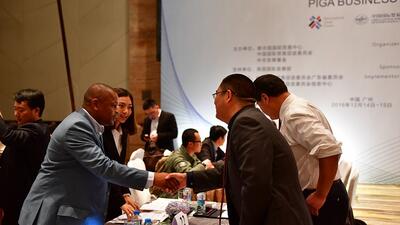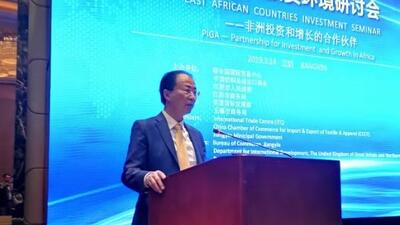10 Years on: China's accession to WTO and lessons for the future
Sweeping domestic reforms and the mobilization of the private sector were two key accomplishments highlighted during an Open Forum organized on 10 November 2011 by the International Trade Centre (ITC) with the World Trade Organization (WTO) in Geneva to celebrate the upcoming 10th anniversary of China’s accession to the WTO. Ten years on, China has become both the leading global trading power and the world’s second largest economy.
Following 15 years of accession negotiations, China joined the WTO in 2001. The need for a well respected multilateral trading system was a sentiment reinforced today by guest speaker Mr. Long Yongtu, Chief Negotiator of China’s accession to the WTO and former Vice Minister of the Ministry of Foreign Trade and Economic Cooperation. As he spoke of China’s role Mr. Long commented, “The new global economic order is evolving; it needs to deliver more justice to the people, development to those who need it most particularly in least developed countries (LDCs). We need to strengthen the WTO, the multilateral trading system and ensure a satisfactory outcome to the Doha Round”.
Mr. Pascal Lamy, Director-General of the WTO shared the crucial lessons learned through the Chinese accession process: the necessity for leadership with a clear strategic vision, the virtue of China’s accession example and the construction of a new, bespoke developing country framework in keeping with its emerging economy status. Russia’s newly announced accession has added yet another dimension to the WTO framework.
Ms. Patricia Francis, Executive Director
of ITC, remarked, “ITC has had a longstanding cooperation with China. First as a recipient of trade related technical assistance, then as a key donor for South-South cooperation and now as a critical partner of ITC in export development”. Ms. Francis also drew attention to the
joint ITC/WTO programme for LDC accession which promotes active engagement and commitment of stakeholders, the private sector in particular. “Practices from recently acceded countries show that accession provides external pressure for domestic reforms leading to major improvements in business environments and a platform to attract foreign direct investment,” said Ms. Francis.
Click here to download pdf version




